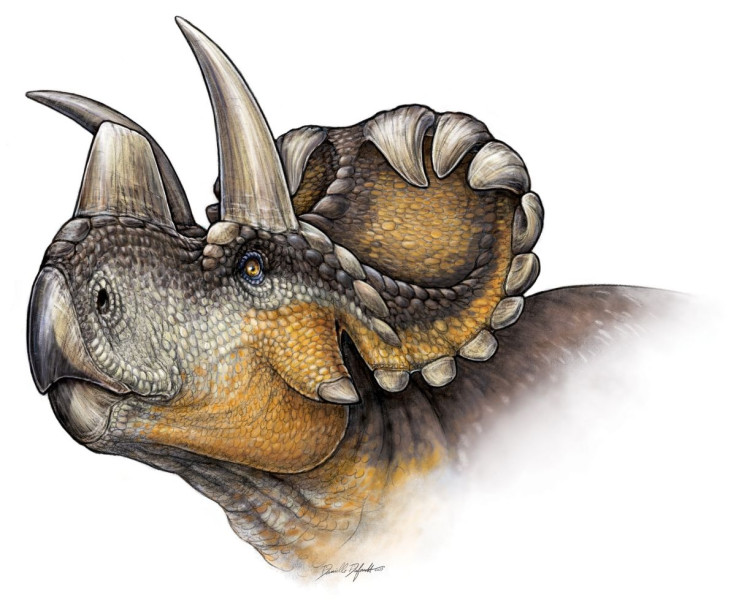Wendiceratops: Scientists Discover New Species Of Horned Dinosaur That Lived 79 Million Years Ago
Ancient fossils collected from southern Alberta in Canada have led to the discovery of a new species of horned dinosaur, which lived on Earth nearly 79 million years ago. Dubbed, “Wendiceratops pinhornensis,” the animal is believed to be one of the oldest-known members of the family of large-bodied horned dinosaurs.
According to the scientists, Wendiceratops was about 20-feet long and weighed more than a ton. It was a herbivore and likely used its parrot-like beak to feed on low-lying plants, slicing them up with dozens of leaf-shaped teeth. The scientists are particularly fascinated by the dinosaur’s skull, which has a series of forward-curling hook-like horns along the margin of the wide, shield-like frill. The findings, based on over 200 bones belonging to at least four individuals, were described in a study published in the journal PLOS ONE on Wednesday.

“The wide frill of Wendiceratops is ringed by numerous curled horns, the nose had a large, upright horn, and it’s likely there were horns over the eyes too,” David Evans, curator of vertebrate paleontology at the Royal Ontario Museum in Toronto and the study’s co-author, said in a statement. “The number of gnarly frill projections and horns makes it one of the most striking horned dinosaurs ever found.”
The horn on the nose is said to be the most interesting feature of Wendiceratops as it reveals that an enlarged cone-shaped nasal horn evolved at least twice in the horned dinosaur family -- once in the group that includes Wendiceratops, and again in the group that includes Triceratops, a genus of herbivorous dinosaur that lived about 68 million years ago.
“The locked horns of two Wendiceratops could have been used in combat between males to gain access to territory or females,” Michael Ryan, curator of vertebrate paleontology at the Cleveland Museum of Natural History and the study’s co-author, said in the statement.
© Copyright IBTimes 2024. All rights reserved.






















